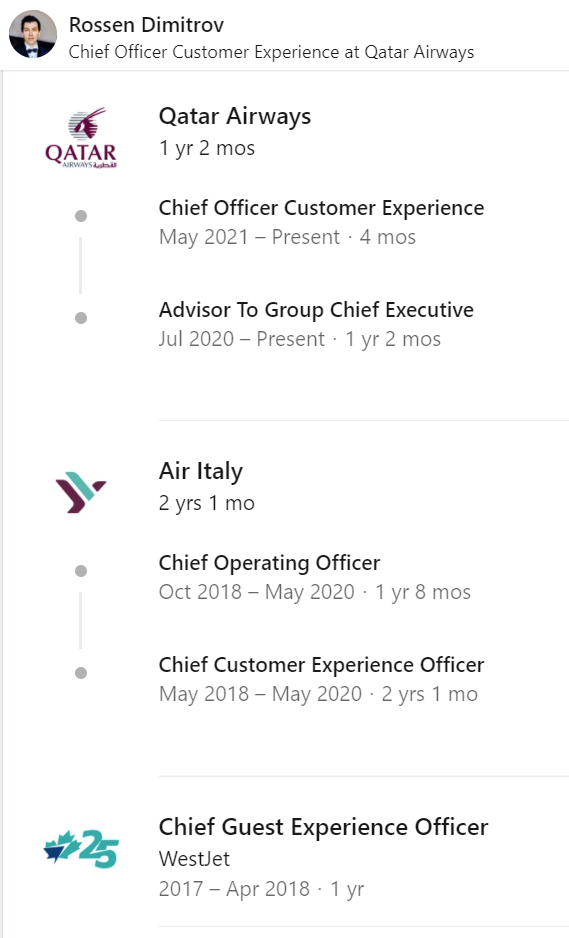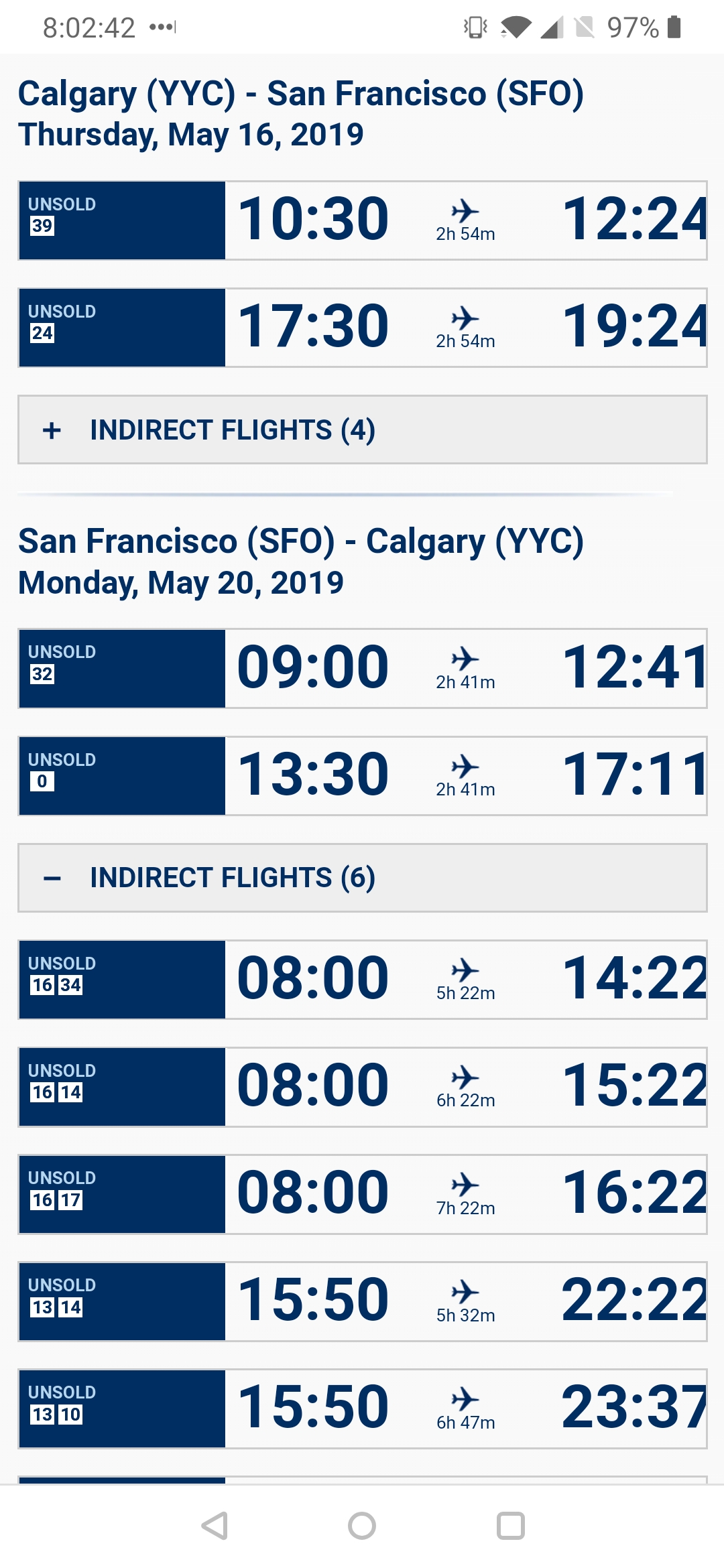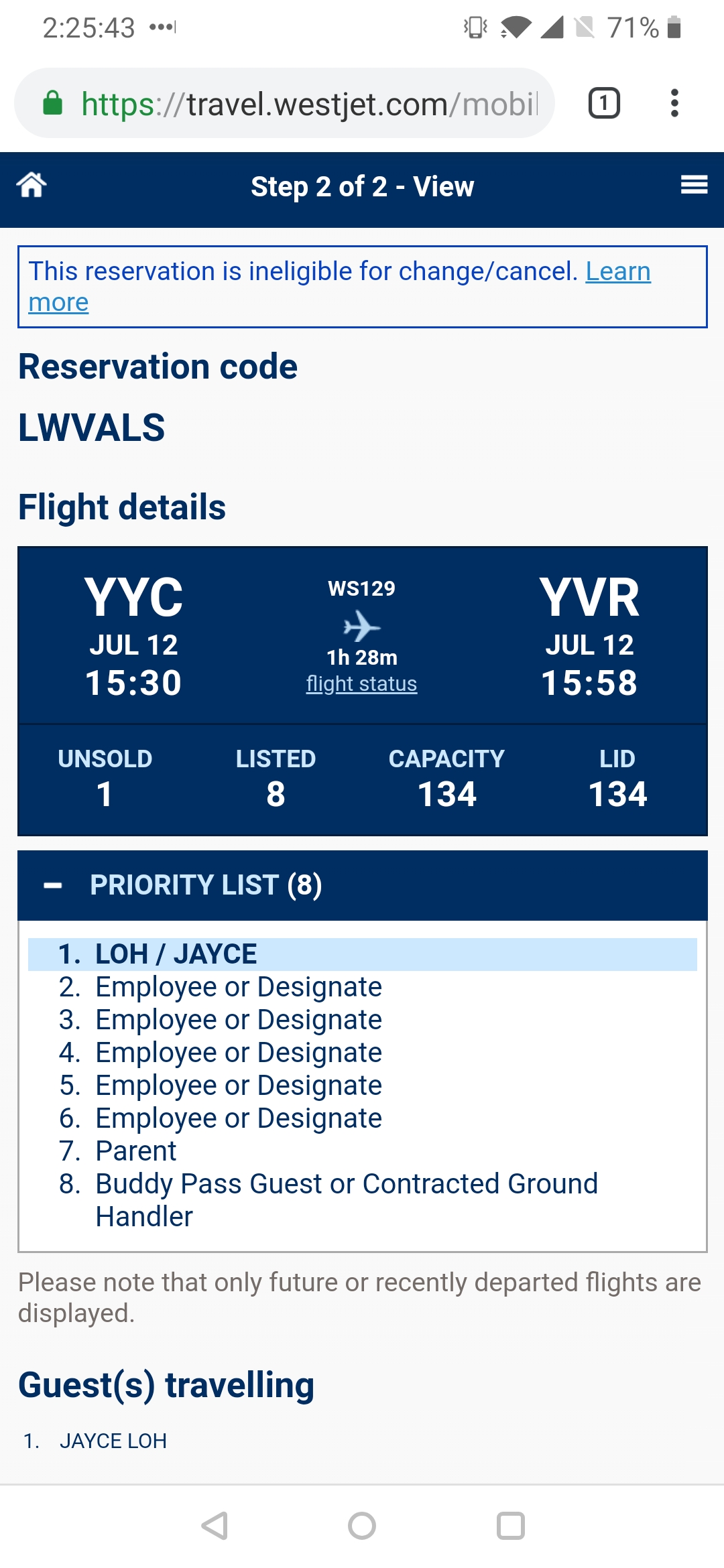For as long as I can remember, I had dreamt of working for an airline and turning my knowledge of loyalty into a career.
When the opportunity presented itself, I scoured the internet for any information I could find around working in an airline loyalty department but came up empty. There simply aren’t any first-hand accounts of what it is like to work for an airline loyalty department, so I thought I would write one.
In this multi-part series, I’ll cover off some of the interesting parts of the industry. My plan is to open the books and demystify the world of airline loyalty. Today, we’ll start with the “why” and the pros and cons of working for an airline.
The Employer
As many of you know, I worked for WestJet, Canada’s second-largest airline, for a year and a half.
Truth be told, I had always wanted to work for Air Canada, but with WestJet being based in Calgary and having an excellent reputation for a strong corporate culture, it was still an interesting option.
In addition to the convenience of having an airline in your backyard, I was also excited about the possibility of working for an airline that was trying to make the transition from a low-cost carrier to a full-service airline.
Transformational Times
When I joined the team, WestJet had just signed an agreement with Boeing to purchase up to 20 Boeing 787-9s, a sure sign that they had aspirations to embrace international destinations.
With the hiring of Rossen Dimitrov as WestJet’s Chief Guest Experience Officer, things were looking very bright. Rossen, who was largely responsible for the concept development and launch of Qatar Airways’s award-winning Qsuites, was a huge coup for a Canadian airline – much less a Canadian airline that was just starting to move away from its reputation of being nothing more than a low-cost leisure airline.
Interestingly, Rossen’s career has now come full circle with his return to Qatar Airways as the Chief Officer of Customer Experience.
Recycling of Talent
Rossen’s story and career path is not anything new for the airline industry. Many executives move from airline to airline, effectively creating a recycling of talent and ideas and an increasingly difficult field to break into.
While some airlines are better at it than others, you certainly can see a pattern in hiring amongst airlines – but I guess that is pretty true of most industries. I suppose this is better than the alternative of hiring those without any loyalty or airline experience.
Why I Wanted to Work with WestJet Loyalty
When I was recruited by the Senior Manager of Loyalty, Sol Zia, to join the WestJet Loyalty Team, I was sold on the idea of coming in on the ground floor with an airline that was looking to transform its loyalty program into one that could be seen by not only Canadians but a worldwide audience as an innovative and transformational program.
It was implied that there were no sacred cows and that no existing programmatic rules were set in stone.
I was also told by Sol that he was looking for a protégé that could step into his role within a year or two. Based on the potential of the program and a chance to learn from a seasoned loyalty expert, everything was looking very promising.
The Salary
When you join an airline, you should know that you probably aren’t getting rich doing so, but I suppose this is entirely based on your perspective of what “rich” is.
With airlines operating on very slim margins, huge fixed costs, and a disproportionate number of employees, it’s no wonder that salaries are challenged in the industry, especially if you are coming in under the Vice President level.
Here in Calgary, where oil rules the day, it’s not uncommon for someone to make six-figures, but if you expect that at an airline, you might want to take off those rose-colured glasses.
When I was offered my position, the HR rep insisted on talking about total compensation, which is usually code for a low base salary. There was talk of potential profit-sharing bonuses of up to 20% annually, WestJet’s generous share purchase plan, and let’s not forget about the free travel.
When I heard about those potential bonuses, I knew that the base salary was going to be hard to swallow, and it was: $85,000 per year as a Loyalty Analyst. Now, I fully understand that this may sound like an appealing figure to some, but it was nowhere close to what I was making in my previous industry.
Thanks to a very understanding spouse and some wise financial decisions in the past, I was able to swallow hard and take a very large pay cut to work in an industry I had always wanted to understand in detail.
Profit-Sharing Bonus
You might be wondering whether or not the profit-sharing bonus ever resulted in anything of significance, and I can assure you, it did not. I do not remember the exact figures, but I do vividly recall joking with other WestJetters about the very nice meal it was able to buy – think hundreds of dollars.
According to some long time WestJetters, it has been years since the profit-sharing bonus was of any significance. This is directly related to the profitability of the airline you work for, and can be very hit or miss. Simply said, don’t base your decision of joining an airline on a profit-sharing bonus.
Stock Purchase Plan
Where WestJet excelled was in its stock purchase plan. Employees could contribute up to 20% of their salary towards WestJet stock purchases, and for every dollar you contributed to the stock purchase program, WestJet would match 100%, which was very generous.
Essentially, if the stock price stayed steady, it meant a 20% bonus on top of your salary. But as we all know, stock prices are never fixed. This meant that you could also do very well or very poorly – it was a bit of a gamble.
Many at WestJet used this program as a savings plan, cashing out whenever they needed to make a large purchase, and there were others that just let the money sit as WestJet stock, which was my modus operandi. When Onex purchased WestJet in 2019, those that had a significant number of shares became overnight successes, as Onex’s offer price was very close to double what the market had priced the WestJet stock.
On the other hand, because I had contributed the full 20% of my salary to the stock purchase plan, my bi-weekly after-taxes salary looked as if I had run a very successful paper route. And while my wife was very understanding, I knew it wasn’t sustainable for the long term.
The Free Travel
One of the biggest perks of working for an airline was your ability to travel to your heart’s content.
I fully took advantage of this benefit and travelled somewhere once every other weekend. Whether it was a quick trip to Chicago to take my daughter to a Taylor Swift concert, or a last-minute flight to support Ricky at a Prince of Travel event, the possibilities were almost endless.
The only cost associated with this “free” travel was the taxes, which usually ran about $60–100 anywhere in the WestJet network. The only catch was that this was standby travel, meaning you weren’t guaranteed a seat until you actually had your standby seat cleared at the gate.
WestJet, as I suspect most airlines, provides their employees with a very good understanding of whether you will “clear” your standby seat based on the number of unsold seats.
As you can see from the example above, you are almost guaranteed to have your seat clear for the 9am flight to SFO, but virtually no chance of getting on the 1:30pm flight.
As the standby queue was based on how quickly you checked in for the flight, there was a mad rush of employees checking in at T-minus 24 hours. Once you checked in, you were given your place in the queue, thus providing you further information on whether or not you were likely to get on the flight.
In the example below, you can see that there is one unsold seat, but I was at the top of the standby queue. If memory serves, I was able to catch this flight, but if I hadn’t, I would have “rolled over” to the next flight and would have taken a higher priority than those in the next queue by virtue of the fact that I had missed my first option.
Ultimately, this was sometimes a game of chicken: would you or wouldn’t you get on the flight? While exceedingly rare, it’s not unheard of for a guest to purchase a last-minute ticket and draw the unsold seat count down to zero.
More commonly, if there were irregular operations (IRROPS) due to mechanical failure or weather, it could make a mess of your best-laid plans. Fortunately, during my time at WestJet, I was never in a situation that I could not recover from.
The closest I got was trying to get on the inaugural flight to Paris. We had just missed the cutoff for seats, so we quickly cancelled our standby for the flight to CDG and instead boarded a flight to London Gatwick (LGW) at the gate across the hall leaving 10 minutes later, and connected onto a cheap Ryanair flight to Paris.
The great thing about the points game that we all play is that I could very easily book my hotel at my destination once I sat in my seat on the plane, knowing that I was guaranteed to travel to my destination. With Marriott Bonvoy being very predictable and generous with their room award availability, it was very easy to make last minute second plans.
Gamifying Standby Travel
Much like understanding how to derive the most benefit out of a loyalty program, an airline’s standby travel presents you with a very similar puzzle to crack, one that I loved sinking my teeth into. As an example, I was able to make a couple of interesting observations.
Almost every employee will tell you never to book a standby flight during a long weekend because demand is too high and the likelihood of you not getting a seat is high.
While this was somewhat true, even the most popular routes were often not sold out during long weekends, so there was almost always a seat or two available. I found that because this advice was so widely distributed, most WestJetters didn’t even bother trying – which left a large gap in the demand for standby travel, a gap that I was more than willing to fill.
In addition to long weekends, one very large pattern that seems to be easily exploitable is that there is almost no demand for travel in the first couple of weeks in December, especially for vacations destinations such as Hawaii. I postulated that this was the case because most people do not take the first couple of weeks in December off so they can take their time during the Christmas break.
This means that almost any destination in the world is wide open to standby travel. It also means that when you are at your destination, you are likely to run into fewer crowds – a big win in my books.
Another great thing to remember is to ask yourself: what is the likelihood of an unsold seat being sold?
In most cases, there aren’t any last-minute meetings required on Oahu or Maui, and your average Joe isn’t shelling out big bucks to fly to Hawaii on a whim.
When you are talking about business routes like Vancouver to Toronto, there is a much stronger likelihood that the demand may arise – but it’s also likely that if that kind of demand exists, there are likely many flight options to service those needs, meaning you are very likely to make it to your destination if you are flexible.
The People
One of the biggest benefits of working in an airline is uncovering the reasons behind the decisions that are made on a day-to-day basis.
If you are really into airlines and the business of airlines, you would have a pretty firm understanding of the economic models that airlines work under.
You might understand why airlines don’t discount tickets, even when the flight operates with 50–100 unsold seats (short answer: business travellers represent inelastic demand, meaning they are not price sensitive). But what you don’t get to to see is how Revenue Management uses modelling and a strong partnership with Loyalty to fill those empty seats.
I’ve had many fascinating discussions with some very intelligent people and have exponentially grown my knowledge of the airline business through these friendships and discussions. When I look back, it’s these discussions that made the whole journey worthwhile – that and the friendships I’ve kept along the way.
Conclusion
Working for an airline has many positives, including the ability to freely explore the entire network of the airline and its partners, but there are also some potentially negative things to consider, specifically around your compensation.
Now that I have given you an initial glimpse of what it was like to work at WestJet, I’ll be bringing you more details in the next installment of what it’s like to work specifically in Loyalty – warts and all.



















Hi Jayce,
This is out of topic question but still related to you and the article.
I wonder, how did you get hired by Westjet knowing you came from Director level to Analyst level? Plus, prior to Westjet, you didn’t have any experience in the airline industry and specifically in the loyalty dept, right?
Thanks!
Oh Max, thanks for the lols. I needed that.
Remember when Sol Zia was let go for … ahem spilling company secrets to AC (amount other things)
Remember when you literally did nothing for the year you were there other then steal RBC corporate hotel rates ?
You’re a fraud Jayce. And the 85k they paid you was 85k too much.
“Amount” other things; other “then” steal – “Peter”
“Should” zero ability; other “then” scam people – “Kyle”
Looks like Jayce was right about the incompetence of WestJet’s remaining loyalty team, as if the program itself wasn’t enough evidence. Lol.
Garth, Darryl, haven’t thought of you two for a while now but it seems as though I’ve been living in your heads rent free for a couple years now. It was fun watching you sap all the value out of the WestJet Rewards program. Pure mastery
Easy on Jayce. He worked hard … at taking 2 hour lunches.
He was a point/credit card churner who should zero ability to do anything other then scam people.
Ask Jayce about why his articles about WJ on his own site have been pulled down (which I suspect will happen here as well).
For a guy who obviously didn’t like the work you sure do like to post about it.
Are you referring to this?
https://www.pointsnerd.ca/why-the-westjet-loyalty-program-is-an-absolute-joke/
Jayce, if you’re ever downtown I’d happily have a 2 hour lunch with you 😀
More seriously, I’m looking forward to the rest of this series. Working in the loyalty space has always been a (pipe)dream of mine so it’s nice to see such an honest take.
Team WestJet Loyalty has arrived. FIGHT!!
Rich people like free stuff just as other people do. Rich people prefer a deal to full price. Rich people collect loyalty points and redeem them.
Sadly, rich people also sometimes feed trolls.
Max is a troll. Few days ago, he posted same crap but said he was making 95k. Go get a job and stay off the net!
Jayce!! Love to see you posting again!
What’s going to happen with PointsNerd?!?!
Don’t get me wrong, I will consume your content wherever you go, and lucky enough on my bi-weekly PoT checkup, I managed to catch your article. But I still check PointsNerd almost daily hoping to see you active again!
Hey Tyler, thanks for your continued support! It’s much appreciated.
I’ll be posting on PoT going forward but have decided to keep the PointsNerd domain active for those looking to dig up historical posts that might help them.
This is better than Netflix, or any other reality TV show out there. Keep the popcorn and comments flowing kids. LOL.
Fantastic article from a very different perspective! I’d be curious what exactly a Loyalty Analyst does at a place like West Jet where rewards are largely fixed.
Part 2 will cover off a lot of your questions – hopefully.
I would like to hear your opinion on what the thought process was on WJ “enhancements” of ME fares. I’m struggling to use WJ with other point methods that I could just use on AC instead.
My opinion is that the WestJet Loyalty program isn’t one. The program started off as a very poor value proposition and the elimination of the original Member Exclusive fares leaves absolutely nothing to desire in a loyalty program.
Thanks, Jayce for sharing. It is interesting to hear the ‘behind the scene’ story.
Also want to thank you for setting up the Westjet hangar tour in 2018 at the YYZ terminal.
Thank you Jayce. I was one of the lucky ones who got to attend too. Watching the planes land from the edge of the hangar right in front of us was something I will not easily forget.
Glad you enjoyed it! Super happy that it seemed to be quite a hit with attendees
Thanks for sharing your perspective Jayce, great article
Very informative and interesting post, especially as someone who plans to work in the airlines later on.
Look, no disrespect but I don’t believe you ever made 85k, frankly that’s huge money for anyone I know I including my self. I busted my but in high school for a good GPA graduated uni and landed a 50k job which I feel is a really fair salary for anyone in their 30s.
You telling me 85k isn’t “nearly enough as you made before” and here you are writing articles on a budget travel forum for a few dollars an hour? Give me a breaaaaak. No one here comes close to 85k, we are budget travellers, as I said before to Ricky if you wanted come close to 6 figures forums are not it, there is no where to make money on these forums, get a real salary job like I do and then see who is lying.
Max brings up a great point. 85k is a very respectable salary and should not be looked down upon. No one on here should be judging someone by how much they make.
I believe you are looking for the peasant of travel site not the prince of travel. Common mistake!
That’s a very narrow minded view of people, which shows how limited your experience is lol.
While 50k is a very respectable salary Max, it’s possible to make 6 figures then take a job for 5 figures. It’s possible to write articles and have other work. It’s also
possible to be interested in points and miles and make 85k … by March.
Lol, not to burst your bubble Max and you must’ve grew up hella poor and same with the “people you know” cause let me tell you 85k salary isn’t a huge amount, and if you need to bust your butt to make 50k in your 30s you’re doing something very wrong or you just suck. Unless you are new to the points game or have never actually been to a meet up, you would know there are PLENTY of professionals here – people that works in government, IT, finance, consulting, healthcare that makes well over 85k.
And you do realize bloggers aren’t just blogging as their main source of income? Get your head out of the sand and realize how little you actually make haha.
I disagree, I did everything my parents and high school counselor told me to do, sacrificed grades in high school for a good GPA, got into an amazing uni and got a white collar job. I am not working on the oil sands or doing complicated task, no I have a real job where I am in a comfort of a desk and plenty of vacation time. So for me if I did everything by the book and I am at 52k year I refuse to believe others are a head, if they are how come I am not? Logic doesn’t add up.
Next, a truly well off person who makes 100k+ wouldn’t rely on sites like this or collect points. I personally do this because I run a balance on several credit cards and need help flipping balances and reconsllidating constantly because travel is so expensive. I follow IG and all the influencer life styles and trips and believe me they don’t use coupons or clips or try to game the system. Its like using a bogo coupon on a date, it doesn’t look impressive. I can’t wait to start making 100k eventually in the future so I can actually graduate beyond this petty point life. Don’t try for a second to sell me on the fact that a rich or well off person uses coupons or codes.. whole point of being rich is convenience of paying for everything as you go with no barriers or calls or bargains or negotiating long hold calls etc. Forget that don’t kid your self rich people got money. They spend it, I will do the same once I hit 100k.
You think people who make money got there with your kind of attitude? Might be worth reflecting on your own insecurities why you “refuse to believe” others are ahead while you’re not. I started churning when was making $50K like yourself, I’m now what you’d call a “rich” making top tax bracket income and I’m in this game deeper than ever. Please don’t project your pathetic assumptions to the general population.
A lot of your reasoning is quite flawed here. I also did the same things as you and make >$150K so by your reasoning, everyone else should also be making 150K. Also believe it or not $150K is not that much to sustain the PoT lifestyle. Taking multiple long haul business or first class trips would add up significantly. I sure as hell can’t afford Cathay F every year out of pocket
The job market is crazy hot right now. No offense, but if you’re 30+ making 52K in a moderately large city, then you either really really love what you do or else have zero technical/people/job-hunting skills.
“I did everything my parents and high school counselor told me to do” – There’s your problem.
I know ‘junior’ developers doing $80k+ after 2 years of experience.
It’s sad how out of touch you are, but props to you for your hard work. Just go on the personal finance canada sub on reddit and you’ll see that unfortunately you are quite behind the rest of us if you’ve got a university degree but only make 50k in your 30s. Most people I know made that a couple years out of uni 10 years ago. Maybe you chose the wrong profession.
It must be soul-crushing to see streamers, onlyfans girls, etc. making more money than you. So illogical!
Maybe you could make it to 100K by teaching university level finance courses …
I make significantly more than 85K and come here frequently.. People who make decent $$ have to figure out how maximize our daily spend $ for some benefits.. Good job Jayce..
Well reasoned sir. You’ve been able to suss out the long con I have been trying to set up this community for in which I lie about my previous salary in order to swindle you for all your miles in some multi leveled scam.
And I would have gotten away with it too, if it wasn’t for you meddling kids.
” No one here comes close to 85k, we are budget travellers”
I disagree. A lot of points and miles enthusiasts are professionals who like to geek out and maximize their returns (think math people like accountants, engineers, etc). Plenty of these people make good money 3-5 years after graduation. Think about the number of times Rickey and the gang do a cost-per-point analysis and end up paying cash for a hotel stay, sometimes $300 a night. Would a budget traveler shell out $300 a night for a hotel, or would someone looking to maximize their returns do that?
Really interesting post – thanks for sharing.